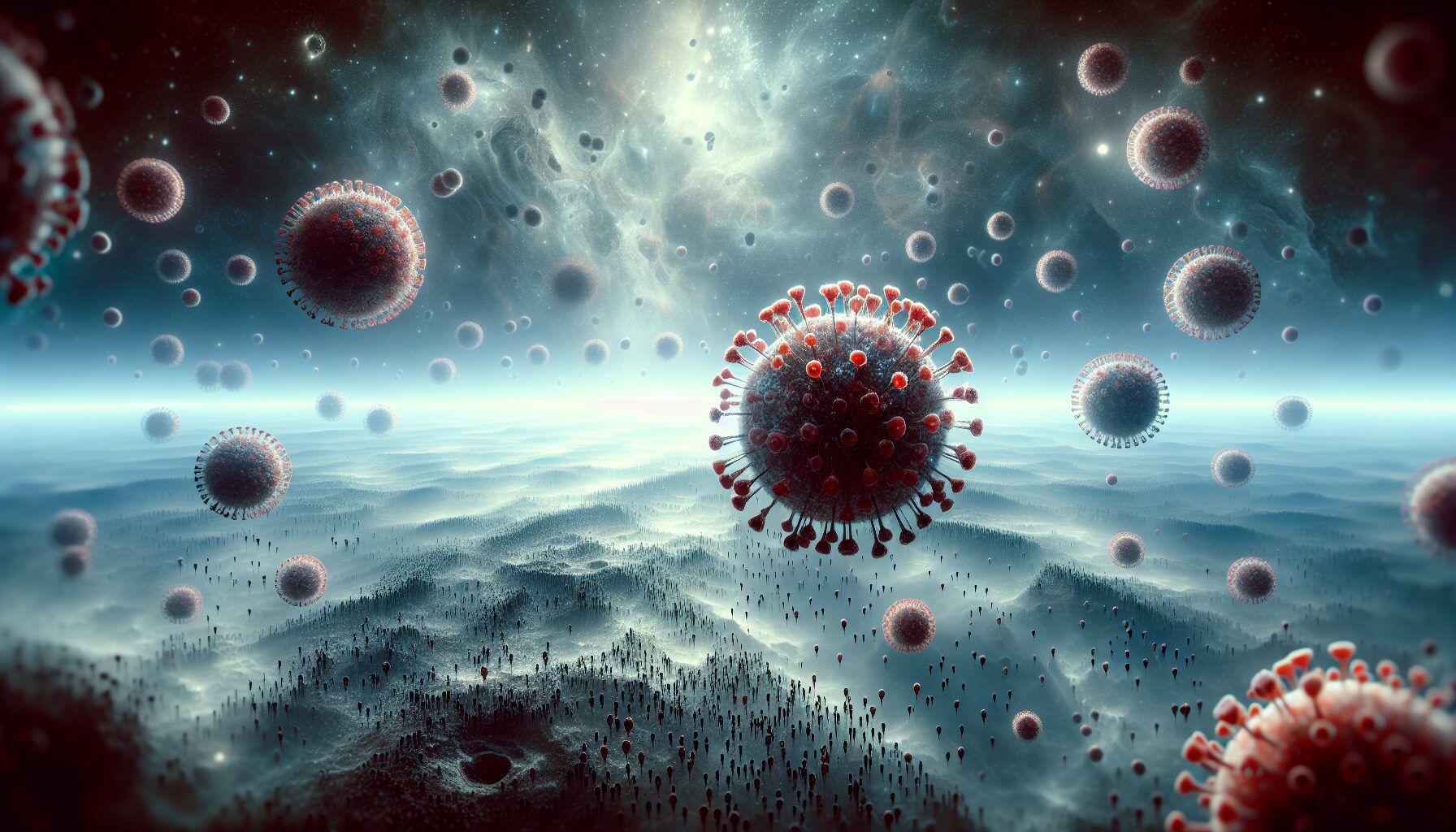In the intricate web of life on Earth, viruses occupy a unique and oddly misunderstood position. Unlike bacteria or larger organisms, viruses are not considered “alive” in the traditional sense. However, their interactions with their hosts reveal a complex relationship that blurs the line between life and death. This paradoxical existence fuels the notion of viruses as a form of eternal life, perpetuating their existence through the creatures they infect.
The Quintessential Paradox: Alive Yet Not Alive
Viruses are intriguing entities, existing in a gray area between living and non-living. They are composed of genetic material encapsulated within a protein coat, but lack the necessary cellular machinery to reproduce independently. Instead, they must invade a host cell, hijacking its biochemical processes to make new virus particles. This reliance on the host opens up debates on the definition of life itself.
“Viruses do not meet most of the criteria that scientists have agreed are needed for something to be considered alive,” said the National Center for Biotechnology Information. “However, they can reproduce and mutate, which are characteristics usually associated with living organisms.”
Viruses: Masters of Evolution
Despite their simplistic structure, viruses are among the most effective agents of evolution in the natural world. By integrating their genetic material with that of their hosts, they introduce new genetic variations, potentially conferring advantages or exposing vulnerabilities. This incorporation often drives evolutionary change, leading to new traits that may benefit both the virus and the host or, conversely, lead to the host’s demise.
The rapid replication rates and mutation capabilities of viruses allow them to adapt swiftly to changing environments. This adaptability ensures their survival across hostile conditions and contributes to their seeming immortality. According to scientists at the University of California, Berkeley, “Viruses are the ultimate biological survivors, continually adapting to exploit new hosts and mediums.”
Lifeblood of Ecosystems
In ecosystems, viruses play a crucial role in maintaining balance. They regulate populations by infecting and controlling the abundance of other organisms, particularly microorganisms in oceans, contributing significantly to the global carbon cycle. Nearly 20% of the ocean’s microbial biomass is killed daily by viruses, releasing nutrients back into the marine ecosystem.
By regulating the dynamics of microorganisms, viruses indirectly support life cycles and biodiversity. Their actions influence the availability of resources and the balance of ecosystems, underscoring their dual role as both creators and destroyers.
Evolutionary Arms Race
Viruses and their hosts are engaged in a constant evolutionary arms race, each evolving new strategies to outmaneuver the other. This ongoing battle drives the development of elaborate defense mechanisms in hosts, including the intricate immune systems seen in humans and animals. In return, viruses evolve sophisticated methods to evade these defenses, ensuring their survival and propagation.
The Philosophical Perspective: Life After Death
From a philosophical standpoint, viruses challenge our understanding of life and death. By extending their existence through their hosts, they epitomize a form of ‘living’ that transcends conventional boundaries. As Richard Dawkins, renowned evolutionary biologist, put it, “When we die, our bodies give rise to other life forms. In a way, viruses continue to live through us, weaving fragments of their existence into the tapestry of life.”
The Future of Viral Research
As our understanding of viruses grows, so too does our ability to harness their unique properties for beneficial purposes. Researchers are exploring viral applications in biotechnology and medicine, such as using genetically modified viruses to target and destroy cancer cells or deliver therapeutic genes to treat genetic disorders.
Ultimately, the study of viruses offers a glimpse into the resilience and adaptability of life itself. Through their complex interactions with hosts, they continue to shape and redefine our understanding of biology, evolution, and existence.
The paradox of viruses as eternal life forms raises profound questions about the nature of life and death, urging us to reconsider our definitions and embrace the intricacies of biological existence.

Comments